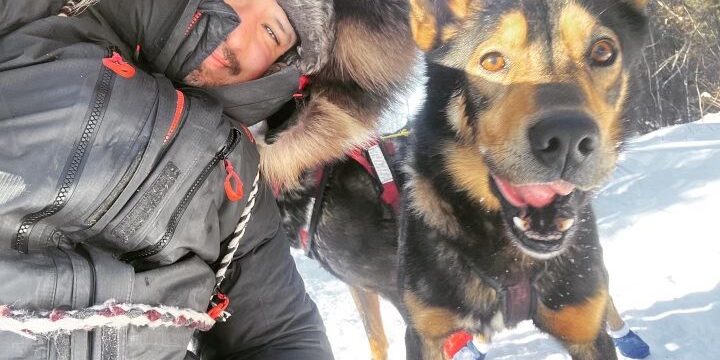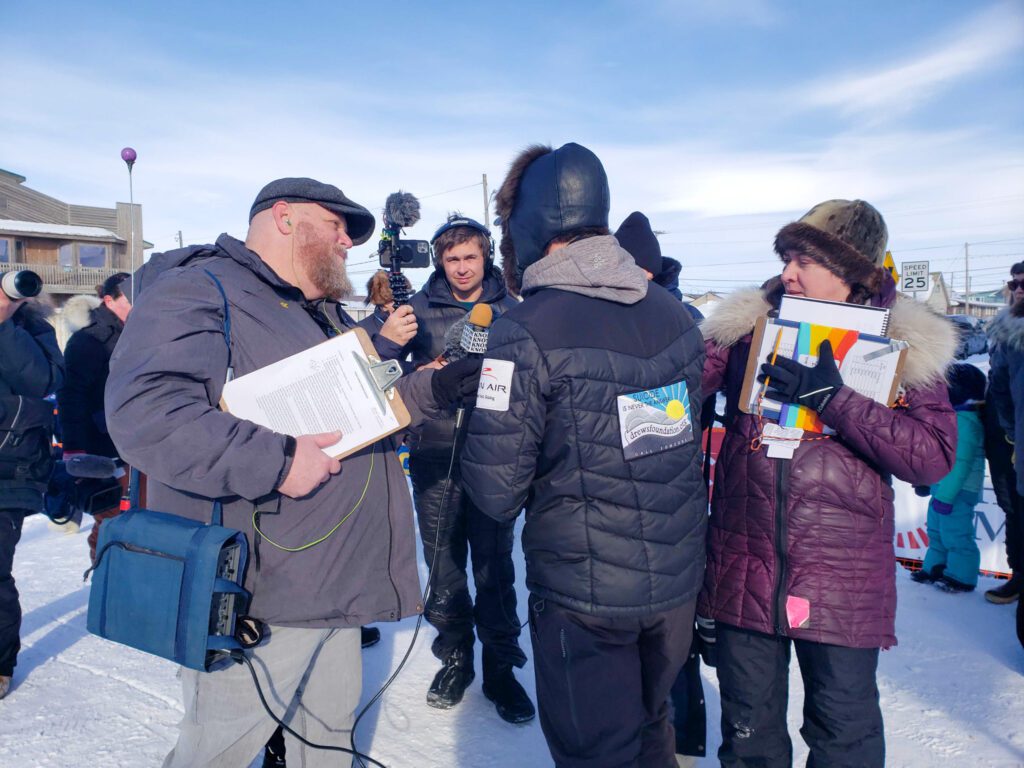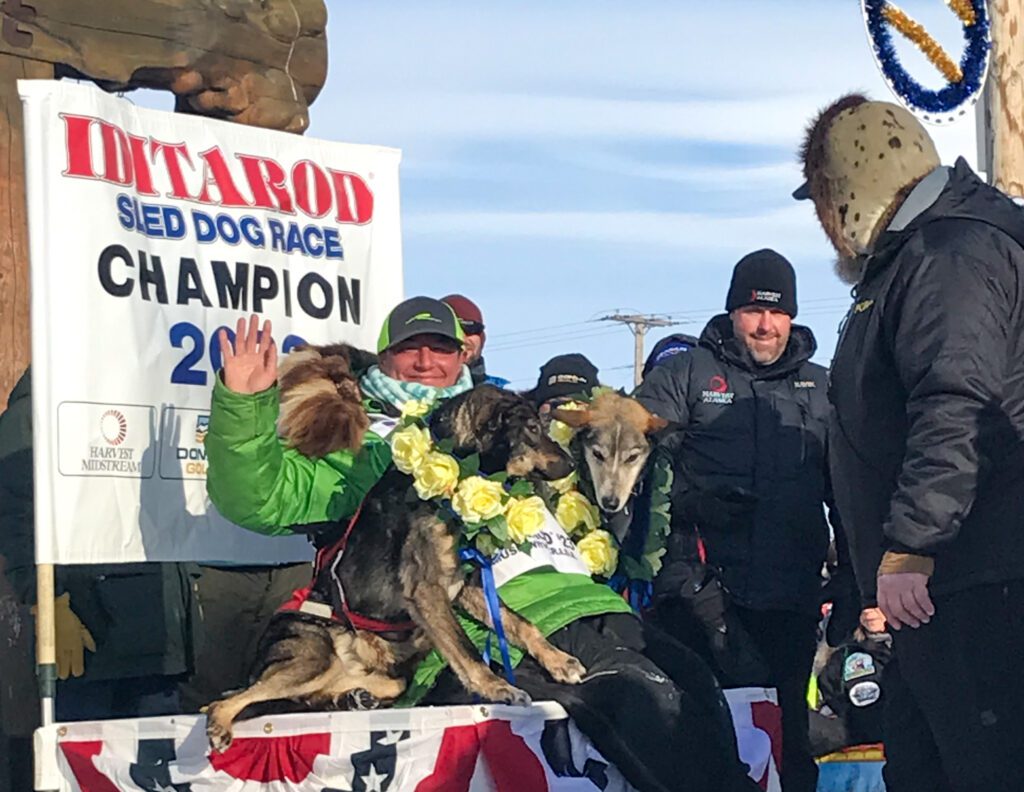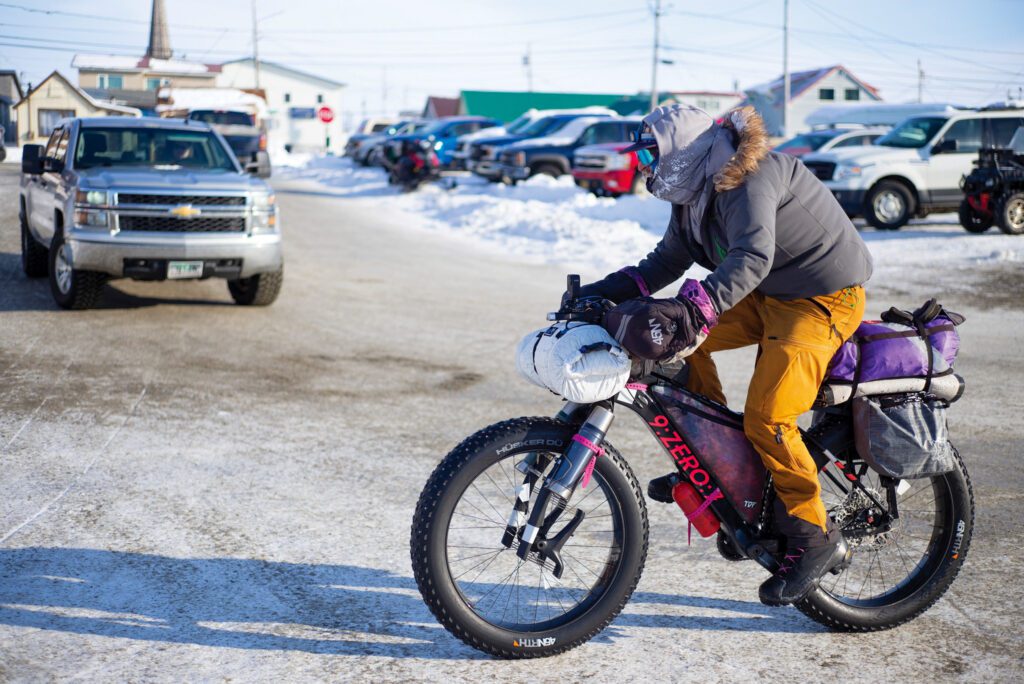This article by Ben Matheson was originally published by Alaska Public Media. It was republished with permission through a partnership with KNOM.
Jennifer LaBar got hooked on long distance adventures while hiking 1,000 miles on the Appalachian Trail.
“It got me in the mindset of like, man, this long distance stuff, these really big epic journeys, it’s just life changing in a really good way,” said LaBar.
She’s already climbed Denali, and now it’s on to the 1,000-mile Iditarod Trail Sled Dog Race.
LaBar, 40, is among the nine rookies in this year’s small Iditarod field of 33 mushers. Three of them raced last year and nearly reached the finish in Nome before being caught in a ground blizzard and dropping out so they’re still considered rookies.
But for LaBar, who lives in Healy, this is her very first Iditarod race.
She said she’s eager to get into the same travel mindset, like she did on the Appalachian Trail, with her 14 dogs.
“I’m gonna pack all my stuff and we’re gonna hit the trail. And after so many miles, we’re gonna take a break, and, you know, just rest and eat, and then take off and run again,” she said.
Eddie Burke Jr., 33, is also gearing up to race his first Iditarod. His introduction to dog mushing came when he showed up at the Iditarod banquet to get some gambling intel.
“I knew nothing about dog mushing, I went to this banquet with some friends because we were betting on Iditarod and we were basically there to do a recon mission and talk to mushers and, you know, see who had what and who was confident and that kind of thing,” he said.

Something clicked that night and Burke started running dogs for fun with friends. But his race career accelerated three years ago when Nenana musher Aaron Burmeister asked him to take over racing his team. Burmeister has raced the Iditarod 21 times, placing in the top 10 eight times. He said last year that he’s stepping away from competing to spend time with family.
Burke quit his job driving a garbage truck in Anchorage and moved to Nenana to run Burmeister’s dogs.
“I didn’t think about it too long,” said Burke. “I was hooked on mushing.”
And then he wanted to take it to the next level. He has quickly built a reputation in mid-distance racing by winning the Knik 200 and placing third in the challenging Kuskokwim 300 in Bethel.
Like Burke, 23-year-old rookie Hunter Keefe is also running dogs from an established kennel. He is driving dogs for Raymie Redington — the son of Iditarod founder Joe Redington Sr.
“If you had told 6- or 7-year-old me that I’d be running my rookie race with Raymie Redington’s dog team, I don’t think I would have even believed myself — or anyone who told me that. It’s pretty, pretty unreal and super special to be getting to race a team that’s Raymie’s life work,” said Keefe.
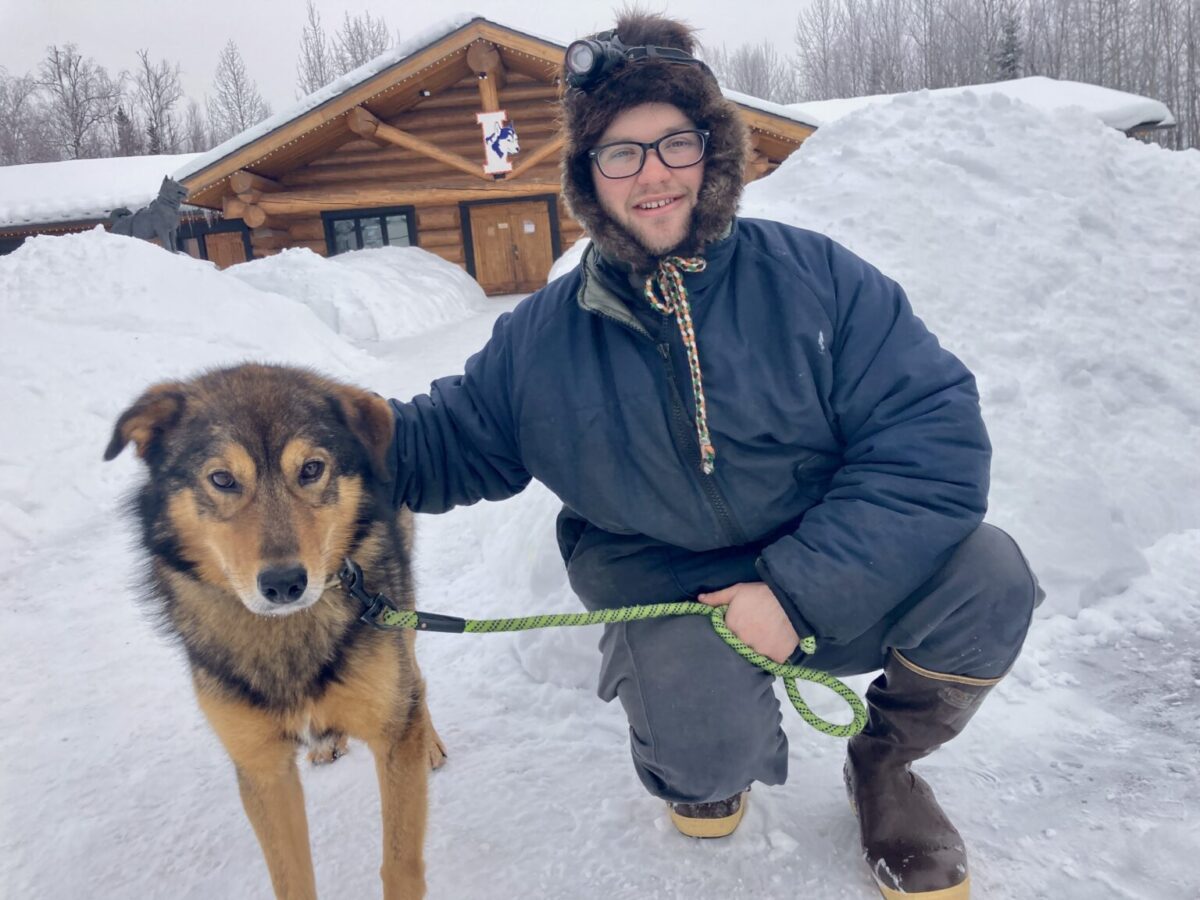
While Keefe didn’t know he’d race with an Iditarod icon’s dogs, he said, he did always imagine competing one day. Growing up in Michigan, he followed the race each March and then moved to Alaska after high school.
“I never changed my dream,” he said. “It always stayed the same. Like some kids want to be a firefighter for a year or two. For me, it was just dog musher. And it never changed.”
A love for dogs also started early for 25-year-old Bailey Vitello, who was standing on the sled runners at age 3 with his dad Gregg. But 47-year-old Gregg said it was Bailey who suggested they both run the Iditarod together as rookies.
“You son says, ‘Let’s go do this now, let’s pick this year, and let’s both just go do it. Let’s both go do it in the same year,’” Gregg recounted. He couldn’t say no.
The two New Hampshire mushers make up what may be the first ever pair of father-son Iditarod rookies in the same race. Bailey raced the Junior Iditarod as a teenager and has been gearing up for the 1,000-mile Iditarod as he built up racing and training experience.
“I’ve kind of just grown into the fact that, like, one day we want to run Iditarod, and it took us a long time and generations of dogs and figuring out what direction we like and how to become a distance musher.”

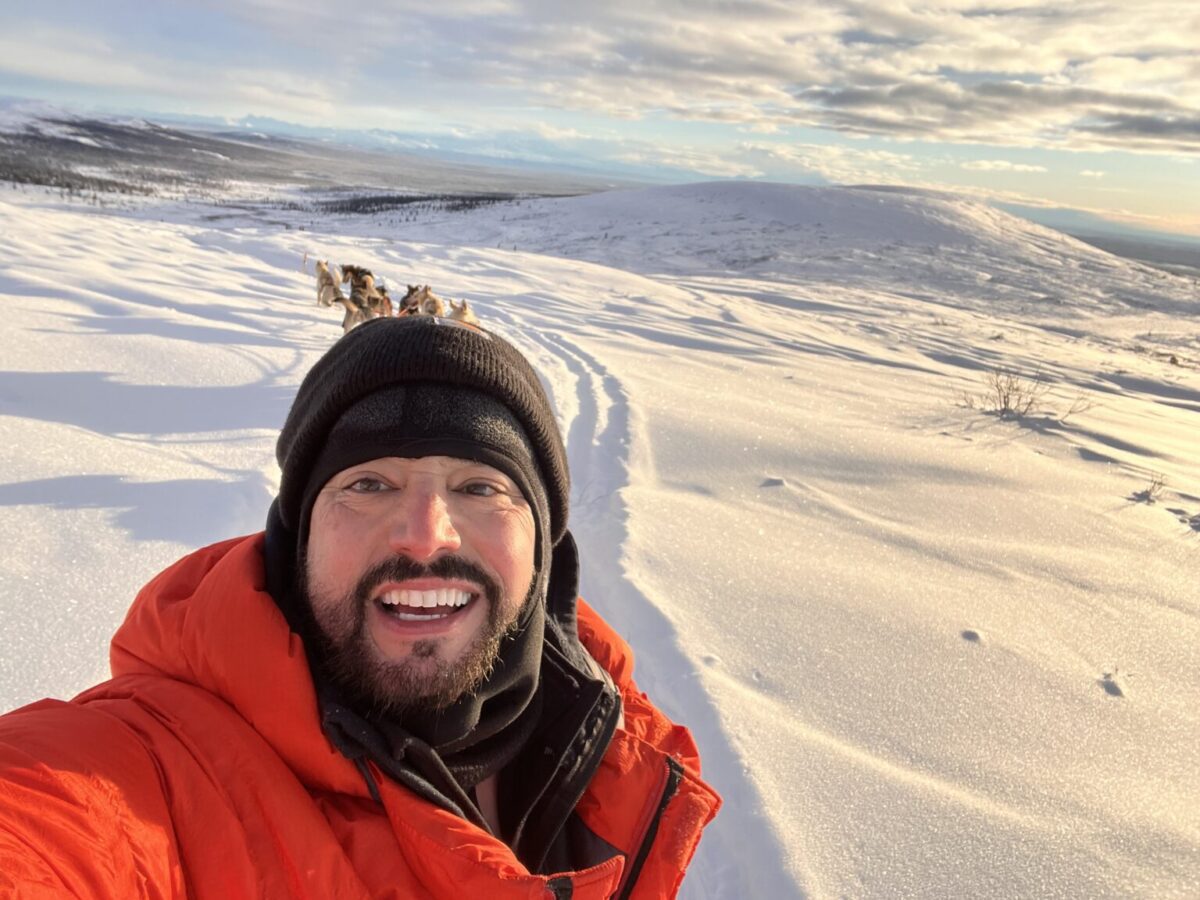
And throughout the years racing and training dogs, Bailey has been studying the sport nonstop.
“We’re both learning what works and doesn’t work together. So it’s a little more fun and exciting. It’s definitely a challenging thing, but yeah, my driving force was, let’s go get this. let’s try it. We can try to attempt to do it and just see how we can do with our dogs,“ he said.
Bailey has raced dogs in France, the Lower 48 and Alaska, turning into what his dad describes as an impressive musher.
“When he was little I used to manage the kennel and feed the dogs and pick the poop. Right, you know, now he’s doing most of that stuff,” said Gregg. “And his work ethic is tireless, you know, it’s impressive, for a young guy, it’s great to see. It’s hard not to support that and the idea that we can go do this together is amazing.”
After leaving the race start in Willow on Sunday, the Vitellos’ running schedules may not have much overlap. So after a lifetime of preparing for the Iditarod together, they’ll plan to meet each other at the finish line in Nome.
Image at top: Healy musher Jennifer LaBar has raised up a team of dogs from puppies to race in her first Iditarod Trail Sled Dog Race. Photo by Jennifer LaBar.




